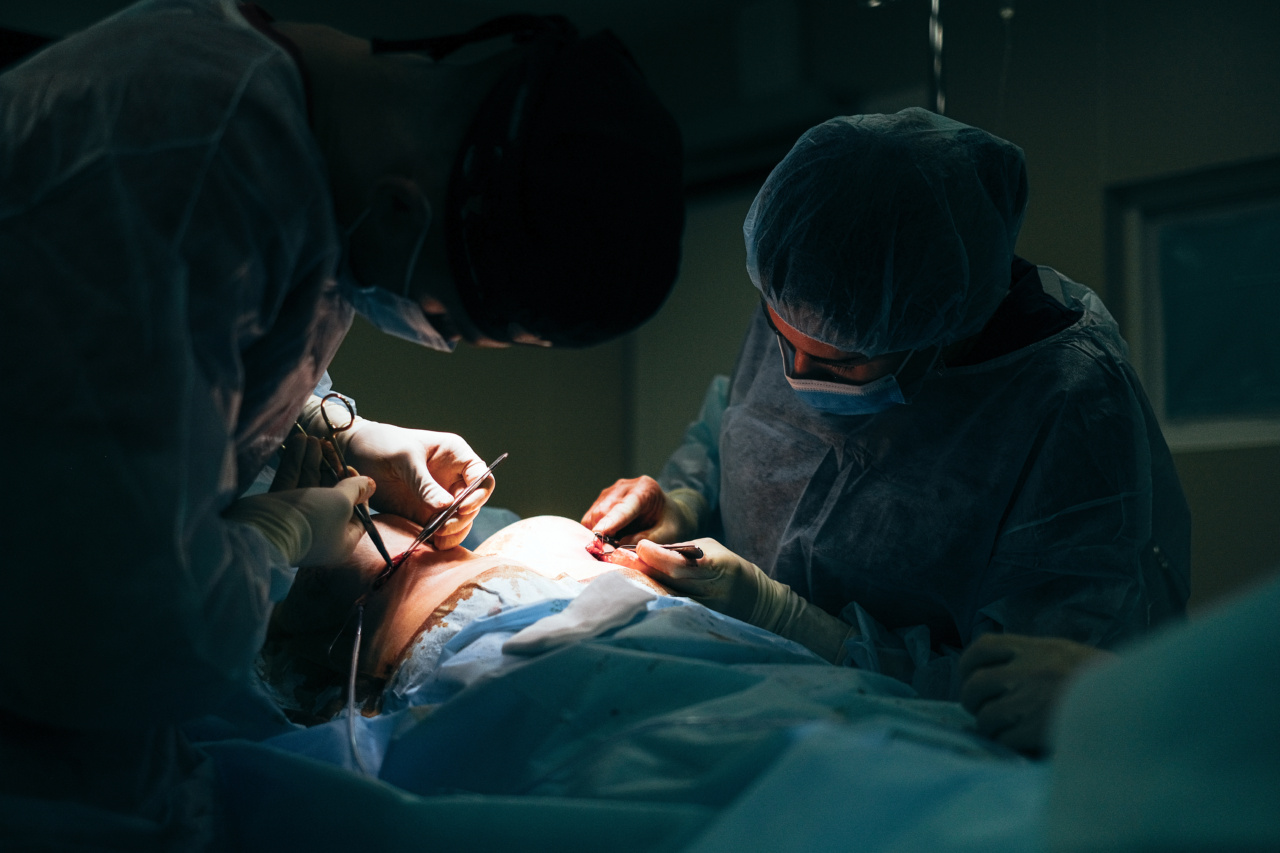Plastic surgery, also known as cosmetic surgery, is a surgical specialty that aims to improve a person’s appearance through the alteration, reconstruction, or restoration of the body.
In recent years, plastic surgery has become increasingly popular due to its ability to enhance physical features and boost self-confidence. While plastic surgery can bring about many benefits, it is important for surgeons to remain vigilant at all times to ensure that complications do not arise.
The Risks of Plastic Surgery
Many people believe that plastic surgery is a simple and risk-free procedure, but this is far from the truth.
Like any surgery, plastic surgery carries a certain level of risk that is dependent on many factors, including the type of surgery, the surgeon’s skill level, and the patient’s overall health. Some of the most common risks associated with plastic surgery include:.
- Bleeding
- Infection
- Scarring
- Nerve damage
- Organ damage
In addition to these risks, plastic surgery also carries the potential for more serious complications, such as blood clots, seizures, pulmonary embolism, heart attack, and even death.
The Importance of Vigilance During Plastic Surgery
Given the many risks associated with plastic surgery, it is critical that surgeons remain vigilant throughout the entire procedure – from the initial consultation to the post-surgical follow-ups.
By doing so, they can help to minimize the risks associated with plastic surgery and ensure that the patient is satisfied with their results.
How Surgeons Can Be Vigilant
There are many ways that a surgeon can be vigilant during plastic surgery. One of the most important is to carefully evaluate the patient’s medical history and overall health before the surgery.
This includes conducting pre-operative tests to ensure that the patient is healthy enough for the procedure, as well as reviewing any medications or supplements that the patient may be taking.
During the surgery itself, the surgeon should be aware of any potential complications that may arise and take steps to prevent them.
This includes properly managing the patient’s anesthesia and monitoring their vital signs throughout the procedure.
After the surgery, the surgeon should closely monitor the patient’s recovery to ensure that there are no complications or infections.
They should also provide the patient with a detailed plan for aftercare, including instructions on how to care for their incisions and how to manage any pain or discomfort.
The Benefits of Vigilance During Plastic Surgery
By remaining vigilant throughout the entire plastic surgery process, surgeons can help to minimize the risks associated with the procedure and ensure that their patients achieve the best possible results.
This can lead to improved patient satisfaction and better overall outcomes for patients.
The Role of Patients in Plastic Surgery
While surgeons play a critical role in ensuring the safety and success of plastic surgery, patients also have an important role to play.
Before undergoing any plastic surgery procedure, patients should thoroughly research their surgeon and make sure that they are properly licensed and experienced. They should also be honest with their surgeon about their medical history and any medications or supplements they may be taking.
After the procedure, patients should carefully follow their surgeon’s aftercare instructions and attend all follow-up appointments. By doing so, they can help ensure a safe and successful recovery.
Conclusion
Plastic surgery can bring about many benefits, but it is not without risks. To minimize these risks, it is important for surgeons to remain vigilant throughout the entire procedure.
By doing so, they can help ensure that their patients achieve the best possible results and avoid any complications.



























